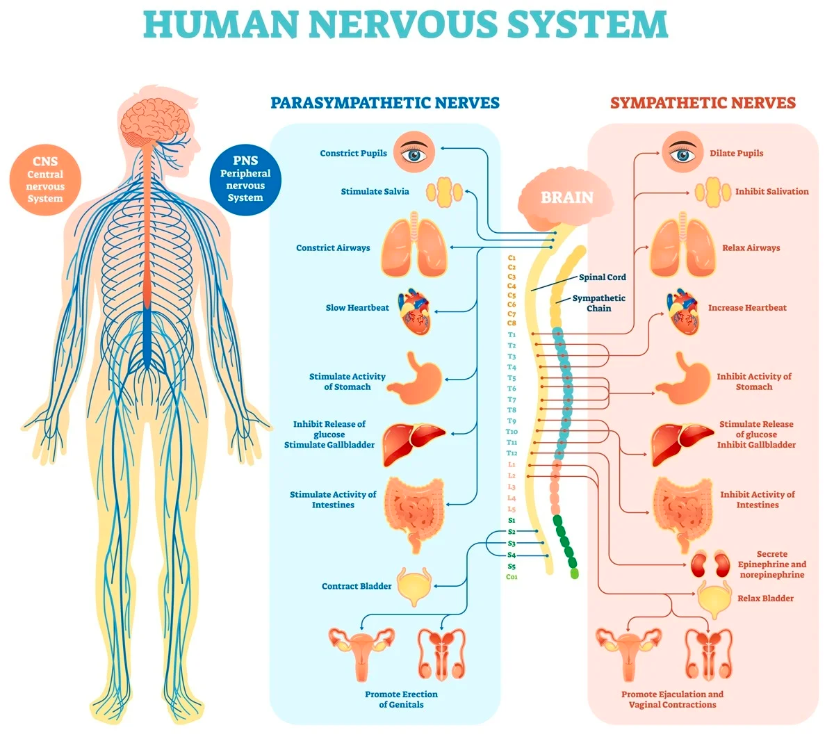The Link Between Estrogen Dominance and Gut Health
July 5, 2021
If you’ve struggled with hormone imbalance throughout your life, you know the symptoms all too well. You’re no stranger to mood swings, cramps, irregular cycles, depression, and the list goes on. After years of frustration, it’s time for a change, but you may be unsure of where to begin.
Synthetic birth control or supplements are up for consideration, but those solutions are like putting a bandaid on a broken bone. You’re attempting to cover up the problem instead of diving deeper into the root cause of the issues you’re having, which may be lying in your gut. Yup—your gut is not only responsible for nutrient-absorption and digestion, but also plays a key role in the regulation of hormones!
How does our gut play a role in our hormonal well-being?
To put it simply, our microbiome (the millions of bacteria living in our gut) are responsible for a wide range of bodily functions, including the regulation of estrogen, serotonin, progesterone, and more. When we fail to take care of our gut by reducing our stress levels, eating nutrient-dense foods, and getting enough sleep, our microbiome lacks the foundation to do its job properly, causing the undesirable symptoms of hormone imbalance.
Our management of estrogen and progesterone is crucial to overall well-being; let’s dive into how our gut helps to regulate these hormones.
Estrogen
High estrogen can cause fibroids, endometriosis, PMS, weight gain (especially in the hips and thighs), and fatigue. To fully understand how our gut plays a role in estrogen levels, we first need to understand how regulation and circulation of this hormone works.
In a healthy body,
1. Estrogen is produced in the ovaries, fat cells, and the brain. (As a woman enters menopause, the ovaries play less of a role in estrogen production)
2. Blood carries estrogen throughout the body and is received by various organs.
3. Estrogen then reaches the liver where it’s deactivated and broken down.
4. A part of our microbiome called the estrobolome is responsible for removing the excess estrogen through the stool.
When you have high estrogen, the estrobolome is overgrown and reabsorbs the already broken down estrogen. It then redistributes it into our bloodstream at dangerously high levels.
Progesterone
Progesterone levels are directly linked to what’s known as Leaky Gut Syndrome. If you’ve heard of this illness in passing, but never quite understood what it means, you’re not alone. Leaky Gut Syndrome is when the bond between cells in your intestines become loose and allow fragments of cell matter to leak into the bloodstream. Though it sounds strange, it’s an especially common phenomenon and can lead to high levels of inflammation in the body.
When the inflammation reaches your ovaries, progesterone projection is put on hold, causing infertility, brain fog, menstrual irregularities, and sugar cravings. Furthermore, the decrease in progesterone can cause estrogen dominance by altering the estrogen/progesterone ratio.
How can I balance my hormones?
When taking strides to balance your hormones, I’ve found the best starting point is to take a natural approach. This means analyzing and improving these aspects of your life:
• Diet
• Sleep
• Stress
Go For the Greens
Your diet should include plant-based, fiber-filled foods such as leafy greens, nuts, seeds, and beans. This isn’t to suggest you should go vegetarian or vegan, but rather to ensure you’re getting essential nutrients to maintain a healthy, optimal gut flora. The organifi green juice is a quick and easy way to get those nutrients on days when you’re on the go (my discount code GUTHEALTH15 will be automatically applied at checkout when using this link).
Catch More Zs
Your lack of sleep is affecting more than your body’s ability to function — it’s also preventing your microbiome from achieving optimal balance. A 2016 Swedish study concluded that only 2 nights of partial sleep deprivation:
1. Reduces the amount of beneficial bacteria in the gut
2. Changes the composition of microorganisms in the gut that link to obesity and type 2 diabetes.
To combat the damaging effects of sleep deprivation, be sure to practice sleep hygiene. Implement a nighttime routine to allow your body to wind down, avoid screens before bedtime, and try a natural solution such as sleepytime tea or lavender spray to relax.
Channel Your Zen
Lastly, reduce your stress levels. Everyone manages stress in their own unique way, and it’s important to figure out what works best for you. If you’ve been attempting yoga for months with little enjoyment and no results, perhaps going for a run or taking a few jabs at a punching bag works better for you.
Regardless of your choice of stress relief, it’s important to make time for it often. Harboring large amounts of stress overtime isn’t doing your hormonal balance any favors, let alone other aspects of your well-being.
A professional GI map test is an incredibly efficient way to measure gut dysbiosis that is likely contributing to estrogen dominance. It’s included in my 1:1 Magic & Medicine coaching program and reviewed by a naturopathic doctor to be sure you’re getting root cause healing and measurable results! Schedule a chat with me to learn more about this process.
Leave a Reply Cancel reply
Featured
Read
Podcast
Have you tuned in?
Chelsea interviews professionals to bring YOU today’s most updated knowledge on nutrition and wellness.





[…] bacteria), it leaves you susceptible to a wide range of illnesses including chronic inflammation, hormonal issues, and even autoimmune […]
[…] break these down here in detail if you suspect you are estrogen dominant and need some actionable steps to balance your […]